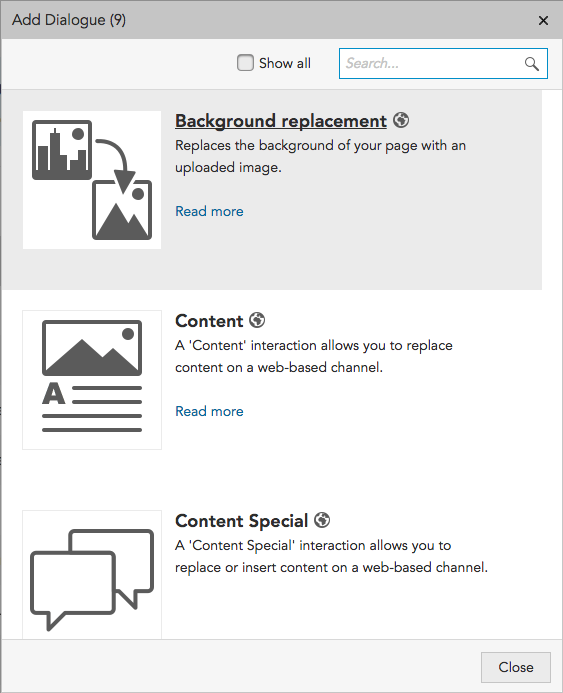

Incorrect: He laughed, “Of course, you didn’t.”.

Incorrect: “Of course, you didn’t,” he laughed.Since action beats often come after a piece of dialogue, the distinction becomes clearer when you try to move it to the front: While you can link together dialogue and a dialogue tag with a comma, action beats are separated with a period. Action beats - like “they laughed/smiled/glowered, etc.”.Let’s start with the distinction between two things often confused with each other: Look through the following 11 scenarios with their rules and examples to better understand punctuation for each dialogue situation you’re likely to face.
How to search a page for dailouge how to#
How to Punctuate Dialogue: 11 Essential Rules
Your characters will sound as you intend them to sound in your reader’s head. Your readers will also appreciate the lack of distracting punctuation errors. Your editor will sincerely appreciate your grasp of dialogue punctuation. Keep in mind the following benefits of getting it right: Much depends on how you punctuate your dialogue. Aside from how they’re used, the presence of each of these makes a character’s words sound different.Īnd when they’re misused or in a way that creates awkward or artificial pauses, they’ll pull your reader right out of the story. #2: How you punctuate your dialogue affects how that dialogue sounds in your reader’s head. Visions of the Universe: Four Centuries of Discoveryĭialogue & Deliberation Resources for LibrariesĪs trusted, safe spaces, libraries are ideal institutions to lead dialogue and deliberation efforts in communities - but with numerous approaches to choose from, it can be difficult to know where to start.As a writer, you’re always learning how to hone your craft. Resilient Communities: Libraries Respond to the Climate Change. Native Voices: Native People's Concepts of Health and Illness. Media Literacy Education in Libraries for Adult Audiences. Engage! Picturing America through Civic Engagement. Building Common Ground: Discussions of Community, Civility and Compassion. Bridging Cultures Bookshelf: Muslim Journeys. Teaching with Primary Sources: Women's Suffrage & Libraries. National Impact of Library Public Programs Assessment. Libraries Transforming Communities: Facilitation Skills for Small and Rural Libraries. Libraries Transform Communities: Engagement Grant. Inclusive Financial Literacy Programming Kit. Community Connect: Digital Access at Home. American Rescue Plan: Humanities Grants for Libraries. Support ALA's Cultural Communities Fund. Apply for Programming Grants and Awards. Turning Outward Resources for Libraries. For Small, Mid-Sized or Rural Public Libraries. LTC Models for Change: Dialogue & Deliberation Resources. Answering Questions about Youth and Access to Library Resources. Selection & Reconsideration Policy Toolkit. Guidelines for Reconsideration Committees. How to Respond to Challenges and Concerns about Library Resources. Library Disaster Preparedness & Response. Internet Access and Digital Holdings in Libraries. Table of Responses Reciprocal Borrowing Survey. Research on Libraries and Librarianship in 2002. Research on Libraries and Librarianship in 2001. Research on Libraries and Librarianship in 2000. Research & Statistics on Libraries & Librarianship in 2003. Public Libraries in the United States Statistical trends, 1990-2003*. Economic Hard Times and Public Library Use Revisited. Academic libraries* in the United States Statistical trends. Partial Results from Schools and Staffing Survey 1999-2000. Collective Bargaining Agreements and Pay Systems. Racial and ethnic diversity among librarians: a status report. Librarianship & Library Staff Statistics. Public Libraries and E-Government Services Public Libraries and Access to Employment Resources State funding for many public libraries on decline. Previous Studies About Public Libraries and the Internet. Public Library Funding & Technology Access Study. Frequently Asked Questions from Authors and Publishers. Frequently Asked Questions About Books and Reading. State of America's Libraries Report 2019. ALA Upcoming Annual Conferences & LibLearnX. Related Groups, Organizations, Affiliates & Chapters.






 0 kommentar(er)
0 kommentar(er)
